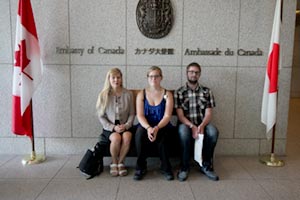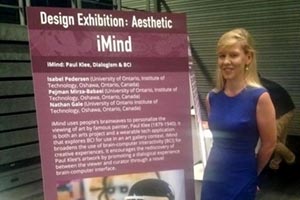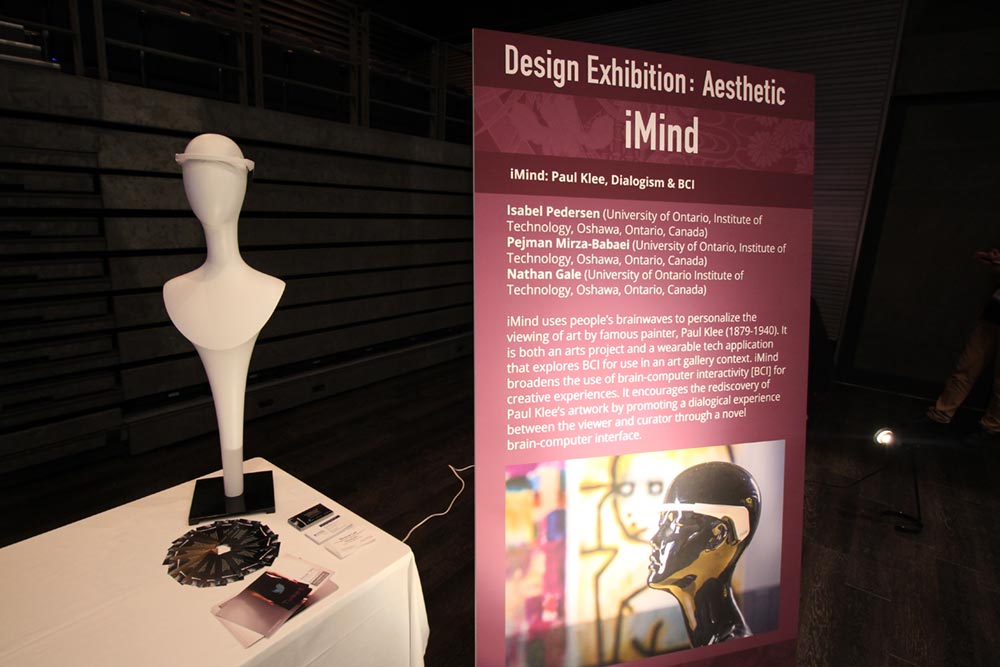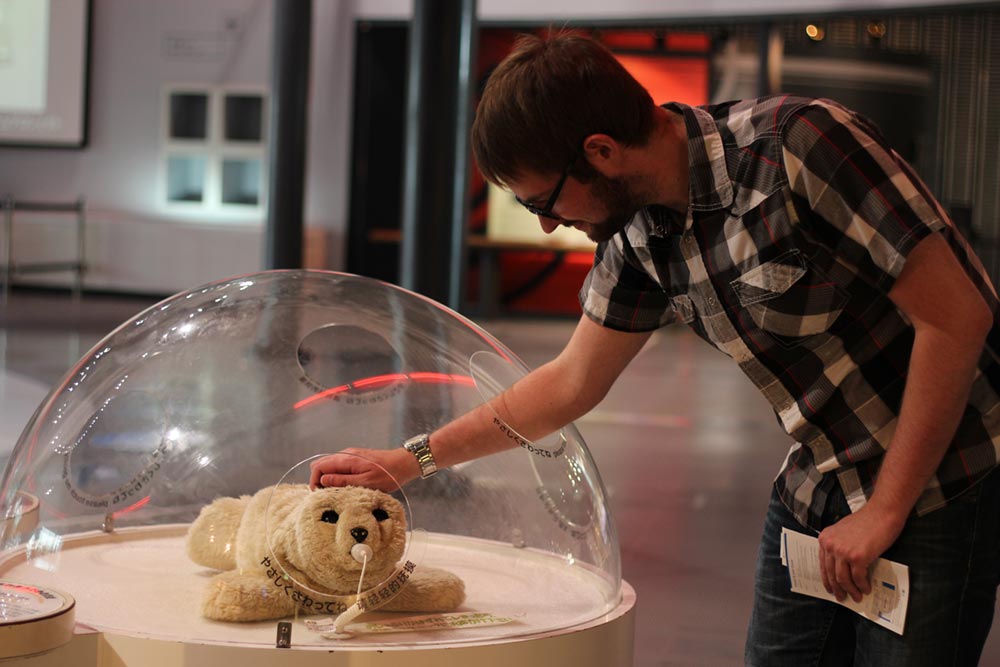UOIT’s Decimal Lab team demonstrates technology at international wearables event in Japan
November 11, 2015

Wearable technologies expert Dr. Isabel Pedersen took three members of the University of Ontario Institute of Technology’s (UOIT) Decimal Lab halfway around the world to conduct field research, forge international connections, and present their wearable technology project at the International Symposium of Wearable Computing (ISWC) Design Exhibition in Osaka, Japan.
“During our time in Japan, the university’s Decimal Lab team had an incredible opportunity to take in an a vast amount of information and learn from other researchers who are working in the area of wearable technology,” said Samantha Reid, Research Manager, Decimal Lab. “Our journey was awe-inspiring and educational. It provided meaningful connections, opened doors for future collaborations and projects, and provided perspective on a culture that accepts technological advancements rather than fears them.”
The highlight of the trip for this group was their opportunity at ISWC to demonstrate iMind, Decimal Lab’s arts-based brain-computer interface and application. iMind is a critical media project that explores an alternative dialogue between the viewer, the art piece and the artist. It encourages participants to ‘select’ which art piece to view, based on their interpreted emotional state.
ISWC participants had a chance to test out iMind, ask questions about the project, and find out more about Decimal Lab and its research.
“The overall result of the exhibition was better than anything we could have hoped for,” said Reid. “The response to our project was extremely positive. Many participants were excited to see that we had taken on a project such as this, and some even saw similarities between it and science fiction or animation references from their childhoods.”

“It was exhilarating to present at ISWC, the world’s most prestigious and long-running academic conference devoted to wearable technology,” said Dr. Isabel Pedersen, Canada Research Chair in Digital Life, Media and Culture. “The University of Ontario Institute of Technology was represented alongside the Georgia Institute of Technology, Massachusetts Institute of Technology, University of Tokyo and many other important technology centres. I am very proud our university was a part of it.”
The team also had a chance to visit the Canadian Embassy during their short stay in Tokyo. Here they met with two senior trade commissioners to discuss commercialization possibilities for two of Decimal Lab’s current projects, as well as potential international partnership opportunities.
In addition, Decimal Lab team members visited Miraikan: National Museum of Emerging Science and Innovation, where they:
- Gathered field research for the Fabric of Digital Life Archive, a digital humanities web-based archive that tracks the language that charts humanity’s progression from the analog to the digital.
- Experienced unique technologies that are currently not available in Canada.
The team included Dr. Pedersen as well as:
- Nathan Gale, Master of Science (Computer Science) candidate
- Cameron Nicoll, Bachelor of Information Technology, Game Development and Entrepreneurship, class of 2016
- Samantha Reid, Research Manager, Decimal Lab; Bachelor of Arts (Honours), Criminology and Justice, class of 2014
Decimal Lab also published a paper on its iMind research, entitled iMind: Paul Klee, Dialogism & BCI. The paper was co-authored by:
- Nathan Gale
- Dr. Pejman Mirza-Babaei, Decimal Lab Associate and Assistant Professor, Faculty of Business and Information Technology
- Dr. Isabel Pedersen
Decimal Lab is a part of the Faculty of Social Science and Humanities located on the first floor of Bordessa Hall, 55 Bond Street East, Oshawa, Ontario. The lab concentrates on digital life and all the challenges faced by citizens when it comes new media adoption. It houses a team of researchers who study and experiment with wearable and augmented-reality technology.
2 > 1




